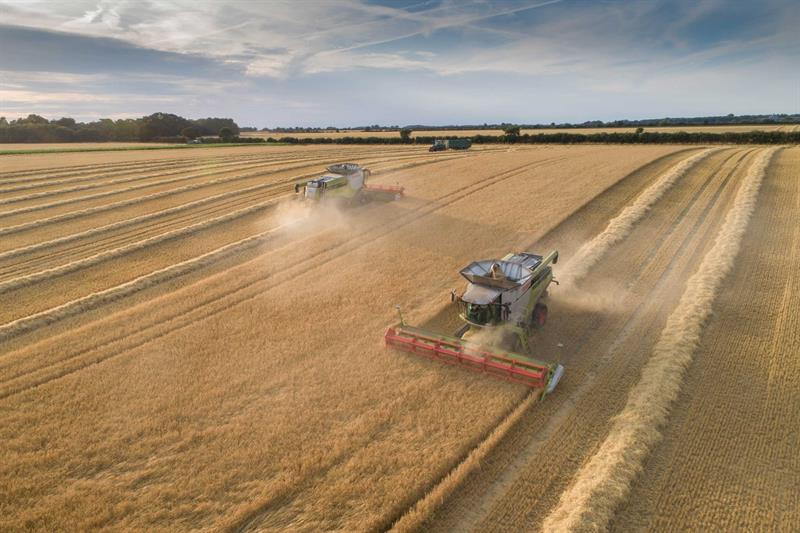On behalf of the Combinable Crops board, Matt Culley speaks in his latest article about recent announcements around Defra’s proposed Environmental Land Management scheme. Matt raises his concerns on behalf of NFU Crops members with full rollout less than two years to go.
Further ELMs updates
Earlier this month the Secretary of State, George Eustice, announced further information around the proposed Environmental Land Management (ELM) scheme, focusing on the two remaining ELM sub-level schemes: the Local Nature Recovery (LNR) scheme and Landscape Recovery (LR) scheme.
The NFU has been calling for more detail on future farm support for some time, and although further information is welcome, it doesn’t go far enough to address the many concerns and questions arable farmers have.
You can read more from the NFU on the outline and next steps of Landscape Recovery and the framework and development of Local Nature Recovery.
More information vital
Fundamental information, such as the actions that farmers will be rewarded for, their payment levels or even scheme length within the LNR scheme, is still needed.
With Defra’s continued ambition to roll out these schemes in 2024, and with the phase-out of vital BPS payments, there is just not enough time for farmers to prepare their businesses for the future unless much more information is released, especially with most businesses planning four to five years ahead.
Board not assured
Further to this, the detail announced to date does not assure the board that these schemes will be able to avoid the failings of previous support seen within the Common Agricultural Policy (CAP).
There is concern that these schemes will be most accessible to larger landowners and larger organisations, whilst less available to tenants and active farmers on the ground.
Fears for tenants
Tenants especially fear that these schemes will incentivise landlords and big estates to take on wider control of holdings.
This could cut out the skills and knowledge held for generations by those who have actively farmed the land under tenancies or other contract farming arrangements, and potentially have major implications for farming communities across the country and the high-quality food they produce.
LR accessibility concerns
There is serious concern around the general accessibility of the LR scheme for farmers, with the minimum area required to participate in this scheme being outlined as 500ha.
This will prevent many small to medium farming enterprises across the country from entering the scheme. Although collaborative ventures offer some opportunity for smaller farmers, to date, there has been no detail released on this opportunity, and with less than two years to go to rollout, many are concerned that this option will just not be feasible for most farmers.
Making the scheme attractive
It was of particular note that the Secretary of State mentioned within his speech at the Oxford Farming Conference 2022, that the government has a responsibility to ensure payment rates are attractive across all levels of ELMs to ensure participation.
However, despite raising countless concerns that the current SFI standard payments are just not enough, with too few standards available for farmers to access, we do feel there is still much more work to be done to make this scheme attractive.
Awaiting confirmation on budget allocations
The NFU has continuously called for a higher proportion of the ELMs budget to be apportioned to the SFI scheme, the fundamental element of ELMs for farmers who manage the vast majority of land across the UK.
We are still waiting on confirmation from Defra around budget allocations, but the board fears farmers will vote with their feet, if the true value of their work continues to go undercompensated.
Taking stock of lessons learnt
With Defra now seeing current Countryside Stewardship schemes as a bridge to the new LNR scheme, it will be necessary to take stock of the lessons learnt over the past decade of Mid and Higher tier schemes, avoiding the pitfalls of the current schemes and ensuring that all areas of ELMs complement good agronomic systems and rotations, and are not overly prescriptive.
A serious impact
Although it may be inevitable that some of these schemes take small areas of land out of production to support environmental benefits, Defra must take in to account that this does have a serious impact on farm efficiency and balancing fixed costs, which, in turn, impacts already stretched business margins.
Further to this, members across the country continue to highlight to myself and the board how much concern there is around the delivery of the new ELM schemes.
At scale and at speed
The RPA, and other supporting organisations, must have the capacity to implement these new schemes at scale and at speed, whilst working to repair previous low levels of trust in their organisations across the farming community.
We continue to call and press Defra for these improvements, and it goes without saying that the overarching ELM scheme must not undermine UK farmers’ capacity to produce food in the UK, it should support it.
Not meeting high standards
It should avoid driving greater exportation of our environmental footprint through importing food that does not meet the high standards of production that UK farmers pride themselves on.
As a board, we’re proud to produce wholesome British food for the British public, and we will continue to represent our members’ concerns across the country to work towards a sustainable future for UK arable farming.
